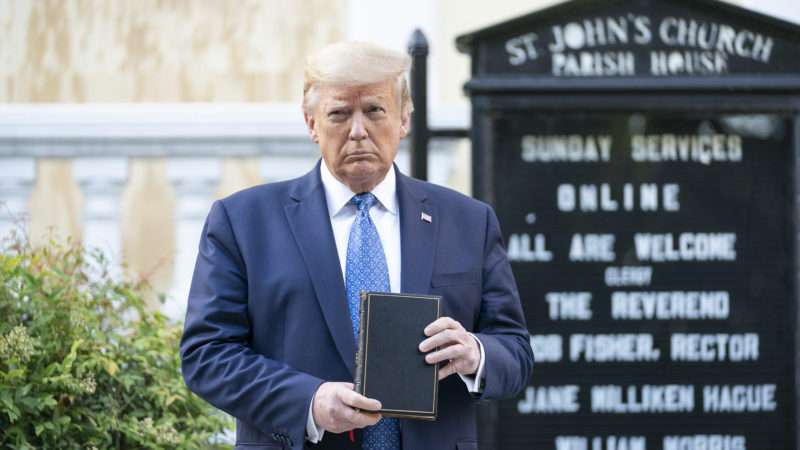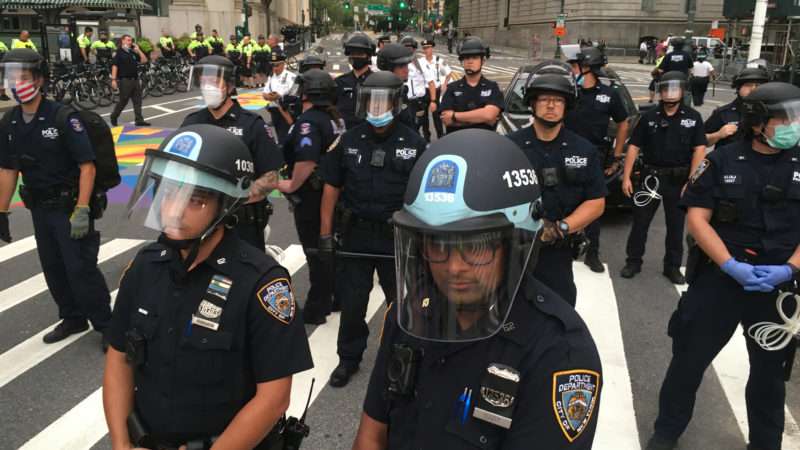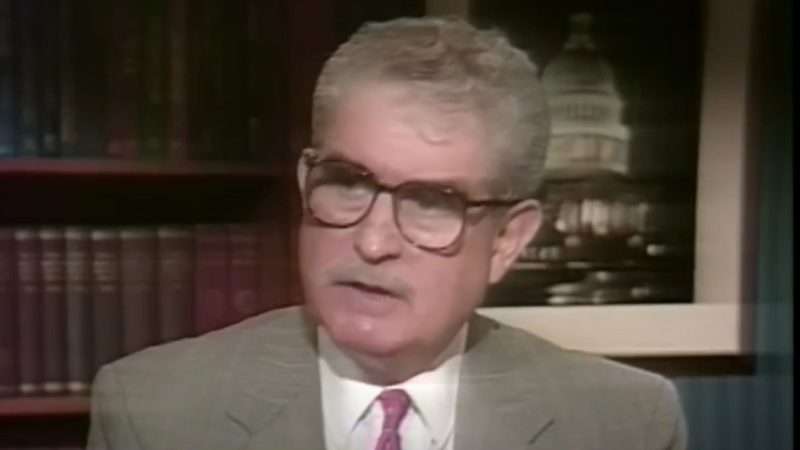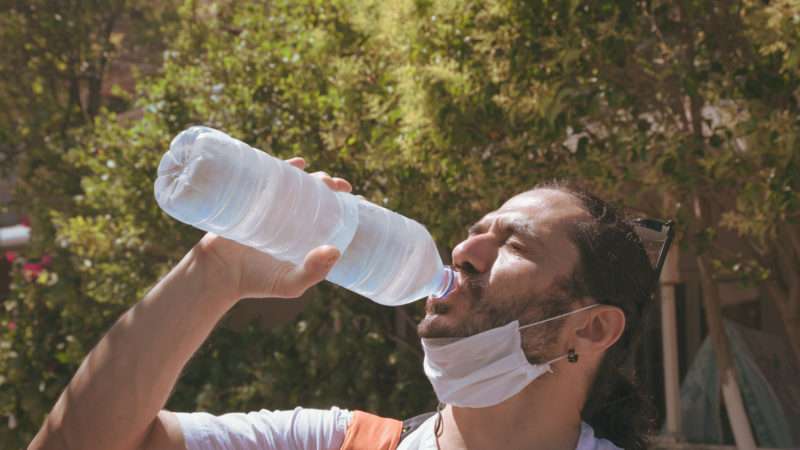From today’s decision by Joseph F. Bataillon in DatabaseUSA.com LLC v. Spamhaus Project:
Earlier, the Court entered a default judgment … against defendant The Spamhaus Project (Spamhaus) and in favor of DatabaseUSA. The Court found the allegations of DatabaseUSA’s complaint, deemed admitted by Spamhaus’s default, properly established the elements of its claims and satisfied the standards for entry of a default judgment against Spamhaus for defamation and tortious interference with a business relationship….
DatabaseUSA now seeks damages in the nominal amount of one dollar, as well as injunctive relief. It contends its damages are difficult to ascertain and also argues that it will suffer irreparable harm absent an injunction. DatabaseUSA proposes that the Court enter an injunction ordering defendant Spamhaus to:
- Publish a statement on the blocklist website that com LLC was wrongfully included on the blocklist from May 2017 until the date of this order;
- include in its published statement a reference to this action by name and case number; and
- remove DatabaseUSA from the blocklist going forward, or provide DatabaseUSA with an explanation for why DatabaseUSA is on the blocklist and an explanation for how DatabaseUSA can be removed from the …
Traditionally, American courts have abided by the rule that “equity will not enjoin a libel” because “damages provide an adequate remedy at law … and to enjoin defamation is to effect an unconstitutional prior restraint on speech.” Sid Dillon Chevrolet, Inc. v. Sullivan (Neb. 1997). However, there is an exception to the general rule where there has been a prior adjudication of falsity.
See Pittsburgh Press Co. v. Pittsburgh Comm’n on Hum. Rels. (1973) (stating the Supreme Court “has never held that all injunctions are impermissible” and noting that “[t]he special vice of a prior restraint is that communication will be suppressed … before an adequate determination that it is unprotected by the First Amendment”); Auburn Police Union v. Carpenter (1st Cir. 1993) (stating “a judicial injunction that prohibits speech prior to a determination that the speech is unprotected … constitutes a prior restraint” (emphasis added)); Sid Dillon Chevrolet (“Absent a prior adversarial determination that the complained of publication is false or a misleading representation of fact, equity will not issue to enjoin a libel or slander, unless such libel or slander is published (1) in violation of a trust or contract or (2) in aid of another tort or unlawful act, or injunctive relief is essential for the preservation of a property right.” (emphasis added)). A restraint via an injunction is permissible if the speech has “been adjudicated to be libelous and therefore not to be protected under the First Amendment.” Nolan v. Campbell (Neb. Ct. App. 2004); see also TM v. MZ (Mich. Ct. App. 2018); Hill v. Petrotech Res. Corp. (Ky. 2010); Balboa Island Village Inn, Inc. v. Lemen (Cal. 2007); San Antonio Comm. Hosp. v. S. Cal. Dist. Council of Carpenters (9th Cir. 1997); Lothschuetz v. Carpenter (6th Cir. 1990); Advanced Training Sys., Inc. v. Caswell Equip. Co., Inc. (Minn. 1984); Organovo Holdings, Inc. v. Dimitrov (Del. Ch. 2017) (all holding that a trial court may enjoin a defendant from making defamatory statements after there has been a determination that the speech is, in fact, false).
Once the speech is found to be false, the question becomes whether the injunction is sufficiently narrow to survive strict scrutiny. In order for an injunction to pass constitutional muster, the suppression must be limited to the precise statements already found libelous. Nolan; see also Advanced Training Sys. v. Caswell Equip. Co. (Minn. 1984) (“We therefore hold that the injunction below, limited as it is to material found either libelous or disparaging after a full jury trial, is not unconstitutional and may stand.”); O’Brien v. Univ. Cmty. Tenants Union, Inc. (Ohio 1975) (“Once speech has judicially been found libelous, if all the requirements for injunctive relief are met, an injunction for restraint of continued publication of that same speech may be proper.”).
Further, a determination that statements were false and defamatory may be based upon an adjudication that results from the entry of a default judgment. See Loden v. Schmidt (Tenn. Ct. App. 2015); see also Lothschuetz (reversing district court’s denial of injunctive relief as an unwarranted restraint on freedom of speech and granting a narrow injunction limited to the statements that had been found, on default, to be false and libelous); Baker v. Kuritzky (D. Mass. 2015) (enjoining specific statements that had been found, by virtue of the default, to be libelous). Also, injunctive relief is a common and non-controversial remedy for tortious interference with prospective economic advantage. Organovo Holdings, (recognizing that a request for equitable remedies for tortious interference with prospective economic advantage can provide the requisite basis for equitable jurisdiction that can justify a related injunction against future speech)….
Continuing defamatory conduct has been held to irreparably injure plaintiffs. Also, “[l]oss of intangible assets such as reputation and goodwill can constitute irreparable injury.” … DatabaseUSA has demonstrated an irreparable injury. It has shown damage to its reputation, a loss of customers, and loss of potential revenue as a result of Spamhaus’s defamation and tortious interference. Spamhaus’s continued wrongful listing of DatabaseUSA as a spammer has a potentially to greatly impact DatabaseUSA’s business. DatabaseUSA has shown that its generally good business reputation that was damaged by Spamhaus’s tortious conduct and the loss associated with damage to its brand or goodwill is difficult to quantify. The inability to calculate DatabaseUSA’s future loss with reasonable precision makes legal remedies inadequate in this case….
In contrast, the burden on Spamhaus in complying with the terms of the narrowly drawn injunction appears slight. Spamhaus did not appear or respond to Database’s allegations in this case. The effort required to post a notice in the nature of a retraction on its website is negligible. The Court finds the negligible harm inflicted on Spamhaus by a narrowly drawn injunction is outweighed by the potential harm to DatabaseUSA in denying the injunction. The public’s interest is furthered by allowing vindication of tortious conduct.
The Court also finds that entry of a narrowly drawn injunction in this case will not implicate constitutional concerns. This is a case involving commercial speech, which is afforded less deference under the First Amendment. Because there has been an adjudication, by virtue of the default judgment, of the falsity of the challenged statements, the constitutional problems associated with a prior restraint are not present. Enjoining Spamhaus’s continuing course of repetitive defamatory conduct does not affect an improper and unconstitutional prior restraint on protected speech.
DatabaseUSA’s proposed injunction passes constitutional muster in part. Its proposed injunction is directed only at the speech that has been adjudicated to be false—the 2017 inclusion of DatabaseUSA on the spammer list. It is properly limited to prohibiting Spamhaus from repeating statements that have been determined to be defamatory. Accordingly, the Court will adopt the plaintiff’s proposal to the extent it is directed at Spamhaus’s past conduct…
Nonetheless, an injunction on future speech must be no more broad than necessary to remedy the wrongful conduct alleged in the complaint. In its complaint, DatabaseUSA challenged its inclusion on a domain block list represented to contain only the domain names of entities “that send emails including phishing, fraud, ‘419,’ malware, or viruses” despite the fact that Database “has never partaken in any of [those] prohibited actions,” without providing “any reason or justification for placing Database on the blocklist.” The conduct addressed in this action is Spamhaus’s wrongful listing of DatabaseUSA.com on its DBL without justification. Going forward, the Court will tailor the injunction as precisely as possible to the needs of the case and the injunction will be aimed only at the conduct that has been found objectionable.
A blanket injunction ordering the defendant not to include DatabaseUSA.com on the DBL in the future would be overly broad and could prohibit speech that is not defamatory. The Court will not enjoin all future listing of DatabaseUSA.com on the DBL but will require Spamhaus to provide a rationale for the listing to DatabaseUSA. Spamhaus is not prevented from including DatabaseUSA.com on its list if it furnishes legitimate reasons for doing so.
Continue reading “Injunction in Libel Case Against the Spamhaus Project”



